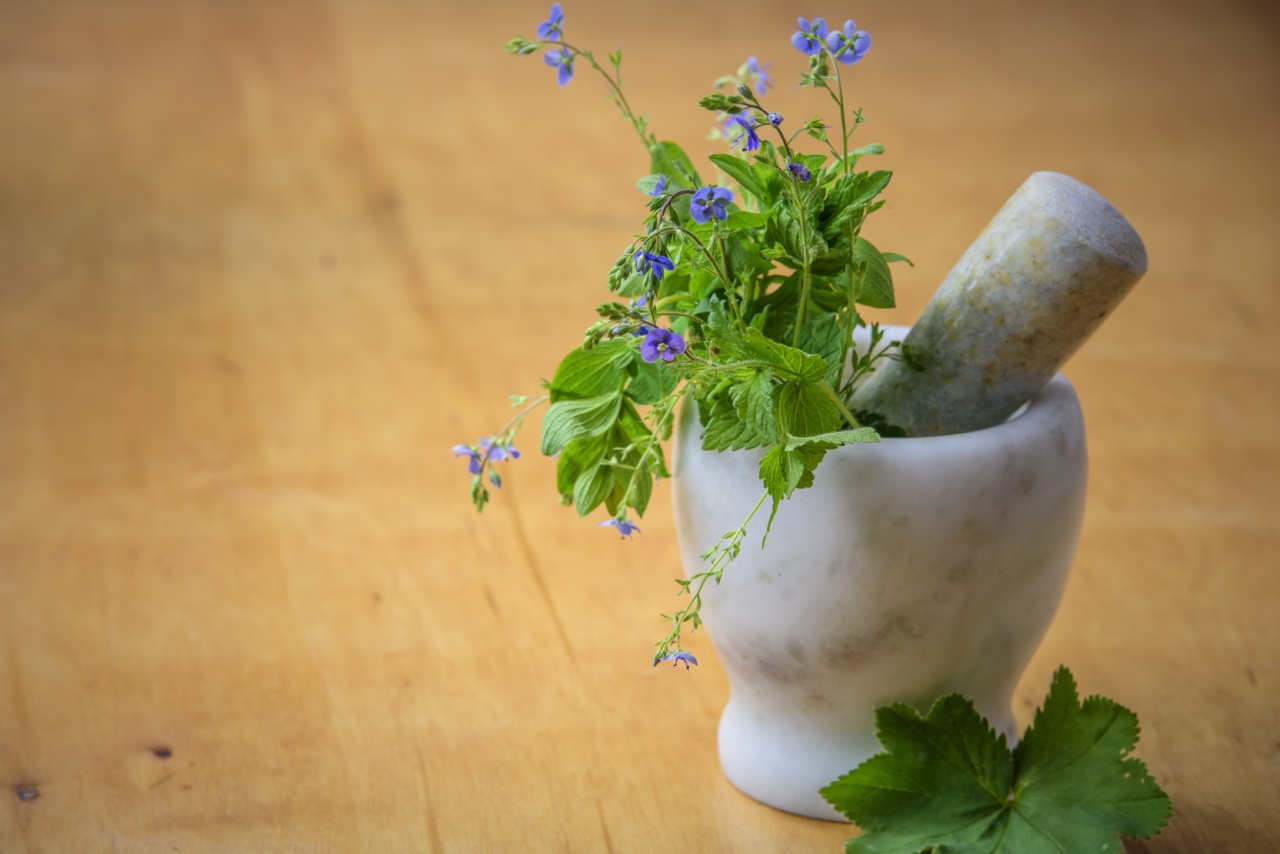In today’s fast-paced world, people are increasingly turning to natural remedies to maintain their health and well-being.
Herbal medicine, also known as botanical medicine, has been used for centuries to treat various ailments and promote overall health. These powerful herbs, with their potent properties, have stood the test of time and continue to be trusted by many.
1. Turmeric
Turmeric is a commonly used spice in many dishes, but it also offers numerous health benefits. Curcumin, the active compound in turmeric, has strong anti-inflammatory and antioxidant properties.
It can help reduce chronic inflammation and oxidative stress, potentially preventing chronic diseases such as heart disease and cancer.
2. Ginger
Ginger, often used to spice up recipes or as a tea, possesses powerful medicinal properties. It is known for its ability to alleviate digestive issues such as nausea, indigestion, and bloating.
Ginger also has anti-inflammatory effects and may help reduce muscle pain and soreness.
3. Garlic
Garlic, besides adding flavor to dishes, has been used for centuries for its medicinal properties. It contains a compound called allicin, which has potent antimicrobial and immune-boosting effects.
Garlic may help lower blood pressure, reduce the risk of heart disease, and strengthen the immune system.
4. Echinacea
Echinacea is a herb widely known for its immune-boosting properties. It can help stimulate the production of white blood cells, enhancing the body’s ability to fight off infections.
Echinacea supplements or teas are often used to support the immune system during cold and flu seasons.
5. Ginseng
Ginseng has long been recognized for its adaptogenic properties, which means it can help the body resist physical and emotional stressors.
It may improve mental and physical performance, reduce inflammation, boost the immune system, and increase energy levels. Ginseng is available in various forms, including capsules, powders, and teas.
6. Peppermint
Peppermint is a versatile herb that offers multiple health benefits. It can help relieve digestive discomfort, ease headaches, and improve mental focus. Peppermint tea is a popular choice for soothing an upset stomach and promoting relaxation.
7. Chamomile
Chamomile has been used for centuries as a calming herb to promote relaxation and improve sleep quality. It has anti-inflammatory properties and may help reduce anxiety and depression symptoms.
Chamomile tea is a popular bedtime drink to aid in relaxation.
8. Ashwagandha
Ashwagandha is an adaptogenic herb renowned for its stress-reducing properties. It may help lower cortisol levels, improve sleep quality, and enhance overall mental well-being.
Ashwagandha supplements are commonly used to combat stress and promote relaxation.
9. St. John’s Wort
St. John’s Wort is a herb often used as a natural remedy for mild to moderate depression. It contains compounds that may increase serotonin levels, which can positively impact mood and emotional well-being.
However, it’s important to note that St. John’s Wort can interact with certain medications, so consultation with a healthcare professional is advised.
While herbs can provide powerful health benefits, it’s crucial to use them responsibly.
If you are pregnant, breastfeeding, or have any underlying health conditions or concerns, consult a healthcare professional before incorporating herbal remedies into your routine. Additionally, always follow recommended dosages and pay attention to possible interactions with medications.
Discover the natural world of herbal medicine and reap the benefits of these powerful herbs. Incorporating them into your daily routine may contribute to enhanced well-being and improved overall health.




























